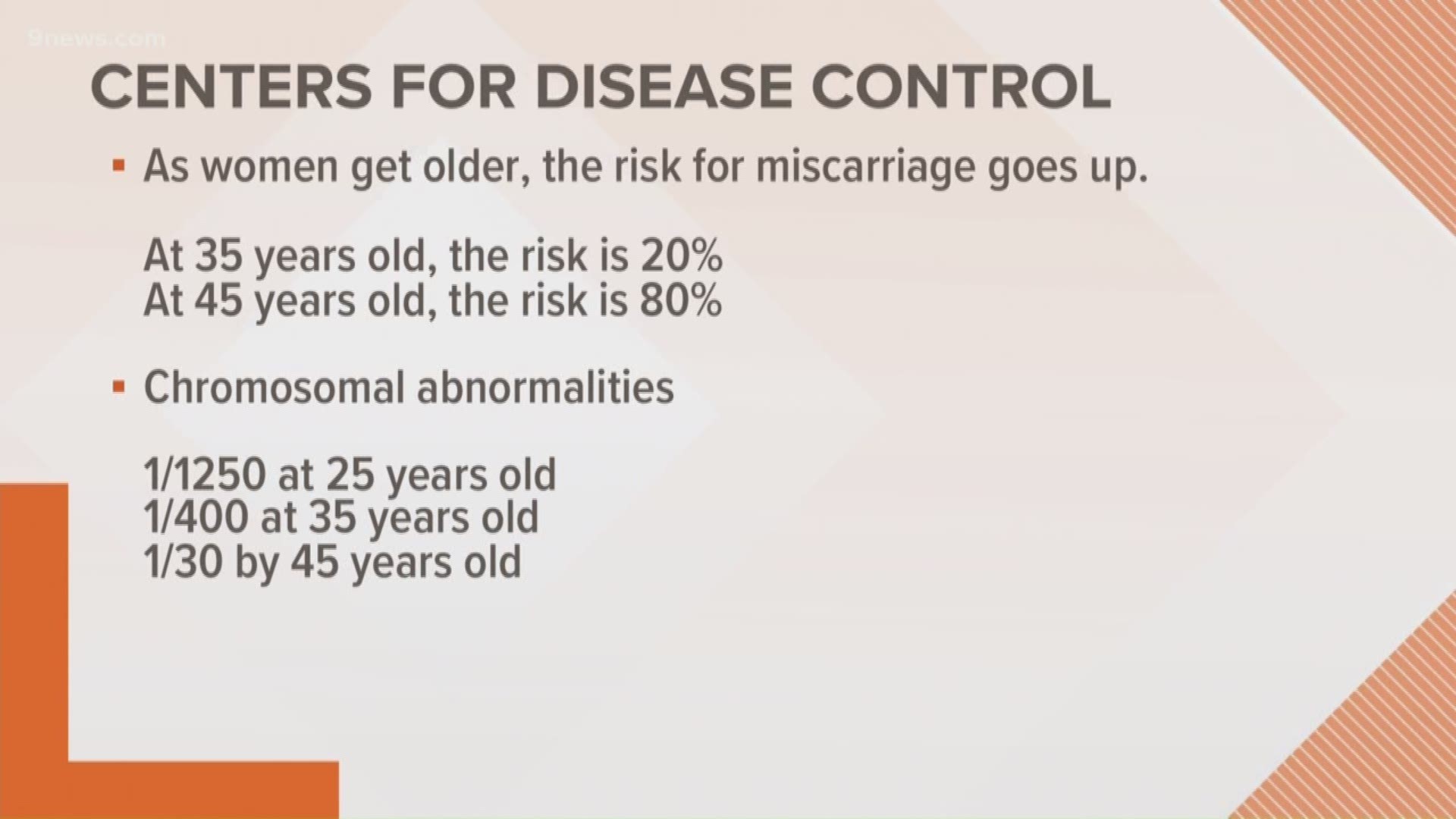DENVER — Fertility treatments for people who struggle conceiving a baby are growing in popularity.
One-third of people surveyed in a Pew Research study said they or someone they know has done fertility treatments.
In 2016 75,000 babies were conceived through assisted reproductive technology, according to the Centers for Disease Control.
But with those advance, more questions are being asked, too. Below are some of the most frequent:
Why are so many people doing fertility treatments?
Infertility is defined as a couple trying to get pregnant for one year without success in either conceiving or carrying the pregnancy out to full-term. The time window is shorter for women 35 years or older (six months rather than 12 months).
Research has shown that women are having babies later in life. More women are choosing to finish their education and start their careers before having children.
The average age for a first child is still late 20s, but the shift is noticeable. As women get older, it is harder to conceive, the risk of miscarriage goes up, as do complications from pregnancy. Risk of miscarriage goes from 20% at 35 year old and up to 80% by 45 years old. Risk of a having a child with chromosomal abnormalities goes from 1/1,250 at 25 years old, 1 in 400 at 35 years old and 1 in 30 by 45 years old.
What are options for people who are trying to become pregnant?
Lifestyle modifications:
- Healthy weight
- Stop smoking
- Cut back on alcohol use
- Decrease stress
Primary care physician:
- Treatable causes (e.g. medications, hormonal issues, thyroid, clotting disorders)
- Structural issues (e.g. blockages in the fallopian tubes, endometriosis or uterine fibroids, cervix issues)
Reproductive specialist:
- Discuss additional testing (testing the male and female partners for additional causes of infertility)
- Discuss treatment options (medications, surgical procedures, intrauterine insemination, assisted reproductive technology (e.g. in-vitro fertilization)
A recent case out of The Cleveland Clinic in Ohio was the first baby born from a deceased donor uterus. How does this experimental treatment work?
Women 21 years old to 39 years old are screened for uterine factor infertility, meaning they don't have a uterus or it was removed. Then, they start in-vitro fertilization to harvest eggs and have six embryos, which can be implanted.
A search is conducted for a deceased donor for a uterus. If one is found, the woman is implanted with the donor uterus and the blood vessels within six to eight hours and also started on anti-rejection medications.
After six months, the embryos are thawed and one by one implanted.
If successful, the baby is delivered by c-section. The uterus can have 1-2 live births, and then is removed from the woman. To date, the Cleveland Clinic has done this five times, with three successful uterine transplants and one live birth.
It's very experimental, but also promising for the 1-in-500 women with uterine factor infertility.
What are some tips for couples who are looking into fertility treatments?
Do your homework. Not every center is created the sameSee what is covered by your insurance.
Some of the initial testing for both the man and woman can be covered by your insurer. Make sure you ask!
Ask about lifestyle modifications.
Consider how conservative or aggressive you want to be to get pregnant
Follow 9NEWS Medical Expert Dr. Comilla Sasson on Facebook and Twitter. Have a medical question or health topic idea? Email Dr. Comilla at comilla.sasson@9news.com
SUGGESTED VIDEOS | Science is cool

